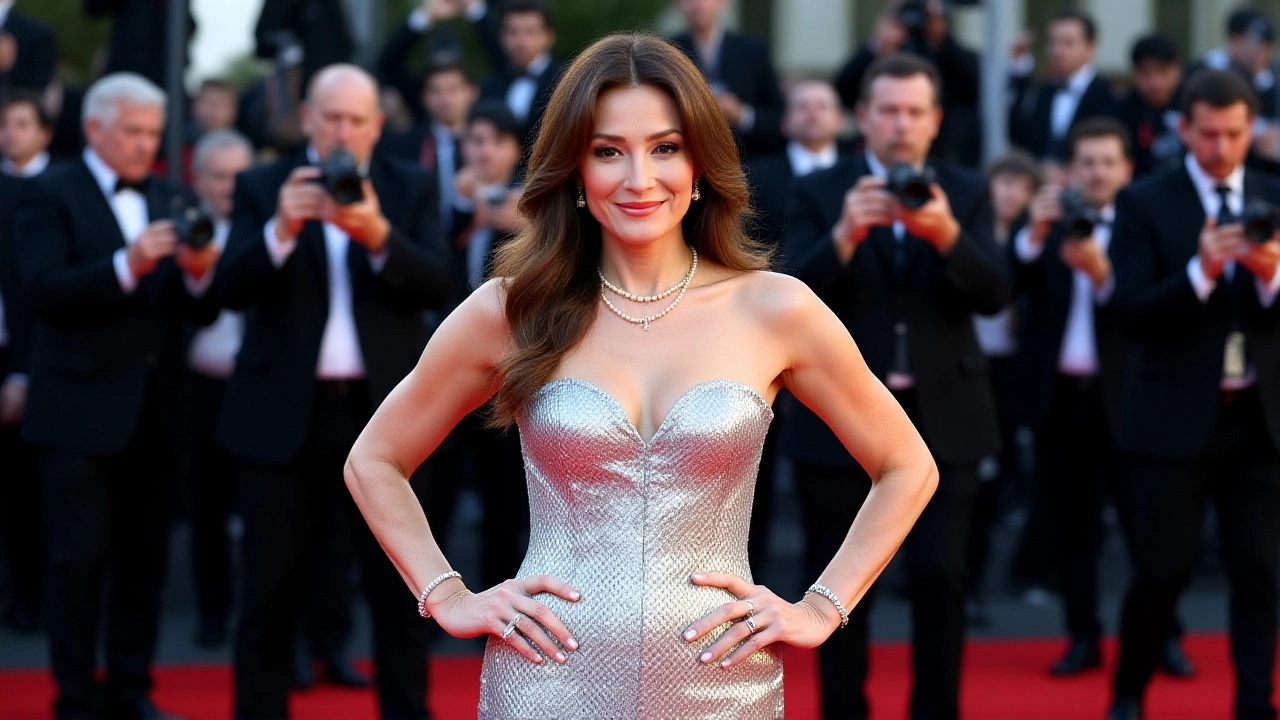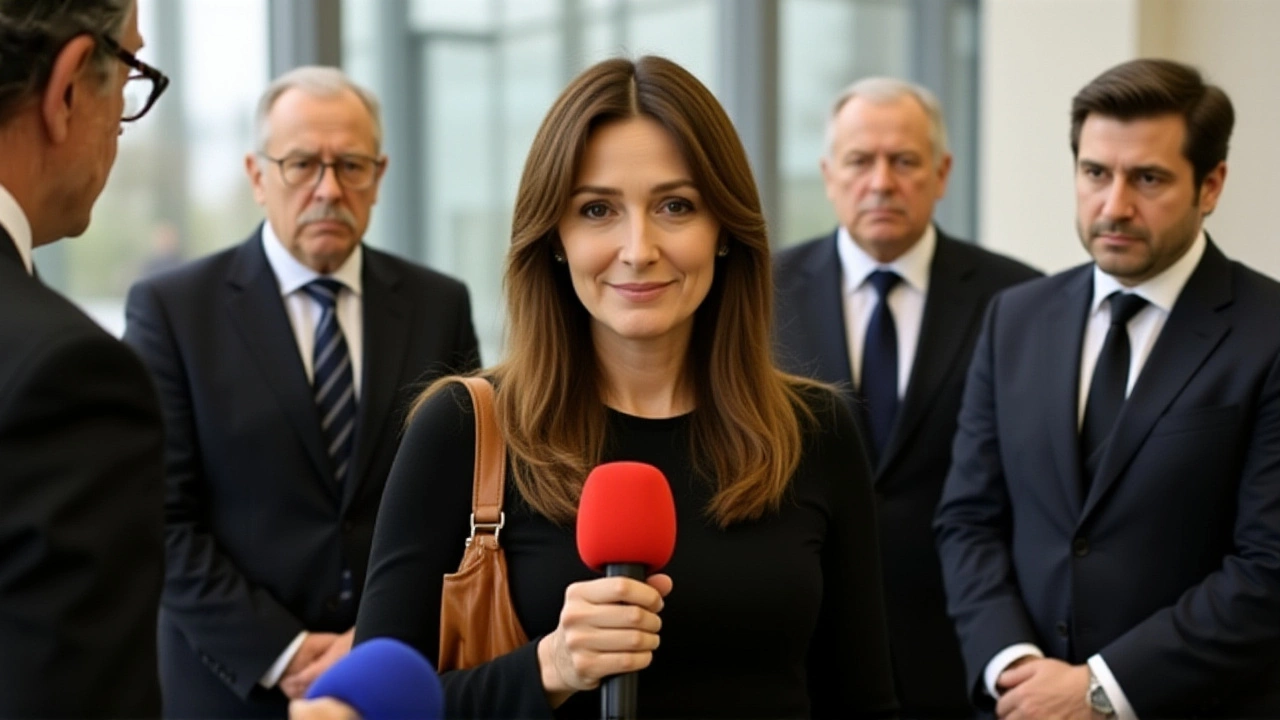When Nicolas Sarkozy, former President of France walked out of his home on October 21, 2025, the world watched a rare moment in French politics. The departure, staged in France, marked the start of a five‑year prison sentence for a conviction of campaign finance conspiracy. Inside the modest residence, a small crowd of family members and loyal supporters gathered after a call from Louis Sarkozy, the former president’s son. Reporting live from the scene, Ellen Gainsford of FRANCE 24 English described the atmosphere as solemn yet defiant.
Background: Sarkozy’s Legal Troubles
The conviction that led to this moment stems from a protracted investigation into the financing of Sarkozy’s 2007 presidential campaign. Prosecutors alleged that illegal foreign contributions were funneled through a network of shell companies, violating France’s strict campaign‑finance statutes. After a lengthy trial that concluded in early 2025, a Paris court handed down the five‑year term, rejecting the defense’s argument that the payments were merely advisory services. This is the first time a former French head of state has been sentenced to imprisonment for a political‑funding offence, a fact that has sent shockwaves through the nation’s political elite.
The Day the Sentence Began
Details of the morning’s logistics remain sparse. Video footage released by FRANCE 24 shows a black government vehicle pulling up to the driveway, flanked by plain‑clothes officers. Sarkozy, dressed in a simple dark suit, was escorted to the back of the car while his family watched from the porch. The exact prison destination was not disclosed, but sources familiar with the case hinted it would be a low‑security facility in the Île‑de‑France region, a location typically used for high‑profile inmates who require heightened media monitoring.
At precisely 10:12 a.m. local time, the vehicle departed, and the convoy disappeared into the suburban streets surrounding the residence. Onlookers shouted slogans of support – "Justice !" and "Solidarité !" – while a few tearful witnesses clutched flags bearing the tricolour. Louis Sarkozy later posted a brief message on social media, thanking those who stood by his father and urging patience as the legal process runs its course.

Reactions from Family and Supporters
Family members, who declined to be named, described the scene as “heart‑breaking but inevitable.” A close confidante told FRANCE 24 that the Sarkozy household had prepared for this day for months, arranging legal counsel and coordinating media statements. Supporters gathered at a nearby park after the departure, holding candles and chanting "Sarkozy ! Sarkozy !" in a display that echoed previous rallies held during his 2012 election campaign.
Political allies, including former prime minister François Fillon, issued restrained statements. Fillon said, “The rule of law must apply to everyone, regardless of former titles.” The comment drew mixed reactions online, with some praising its measured tone while others accused Fillon of distancing himself from the former president.
Legal and Political Implications
Legal experts see the case as a watershed moment for French electoral law. Professor Marie‑Claire Dubois of Sciences Po noted, “Sarkozy’s conviction could deter future attempts to mask foreign money in campaign accounts. It also tests the resilience of French institutions when dealing with high‑profile political figures.” The sentence may prompt a review of the 1976 law governing campaign contributions, which many argue is outdated in the era of digital fundraising.
Internationally, the event has drawn comparisons to the 2019 impeachment of former Brazilian President Dilma Rousseau, although the French judicial process is strictly criminal rather than political. Analysts suggest that the conviction could embolden opposition parties ahead of the 2027 legislative elections, potentially reshaping the landscape for the center‑right Les Républicains, the party Sarkozy once led.

What Lies Ahead
With the sentence now in effect, the focus shifts to the prison term itself. French law allows for parole after serving half the sentence, but any appeal on procedural grounds must be filed within two months of the verdict. So far, Sarkozy’s legal team has signaled an intention to pursue every available avenue, though no formal appeal has been lodged as of this writing.
Beyond the legal battle, the political fallout could be profound. If the conviction stands, it may permanently tarnish Sarkozy’s legacy and limit his influence over the party he helped build. Conversely, a successful appeal could revive discussions about judicial overreach in politically charged cases.
Frequently Asked Questions
How does Sarkozy’s imprisonment affect the Les Républicains party?
The former president’s legal troubles have created a leadership vacuum within Les Républicains. Party insiders fear a loss of voter confidence, especially among older supporters who still view Sarkozy as a charismatic figure. The scandal may accelerate internal power struggles as younger members vie for prominence.
What are the chances of an appeal succeeding?
Legal scholars estimate a modest chance—roughly 20‑30%—that an appeal could overturn the conviction. Success would likely hinge on procedural errors uncovered during the trial, such as evidence handling or jury instructions. So far, no concrete basis for appeal has been publicly disclosed.
Will the French public support the sentence?
Public opinion is split. A poll conducted by IFOP in early November 2025 showed 42% approving the sentence, 35% opposed, and 23% undecided. Younger voters tend to support the ruling as a sign of accountability, while older demographics recall Sarkozy’s earlier contributions to French politics.
What does this case mean for future campaign‑finance regulations?
The conviction is likely to spur legislative reform. Lawmakers have already proposed tightening disclosure thresholds for foreign donors and increasing penalties for violations. If passed, the new rules could make France’s campaign‑finance framework among the strictest in Europe.
Where will Sarkozy serve his five‑year term?
Officials have not released the exact facility, but insiders suggest a low‑security prison in the Île‑de‑France region, chosen for its ability to accommodate high‑profile inmates while allowing limited media access.
